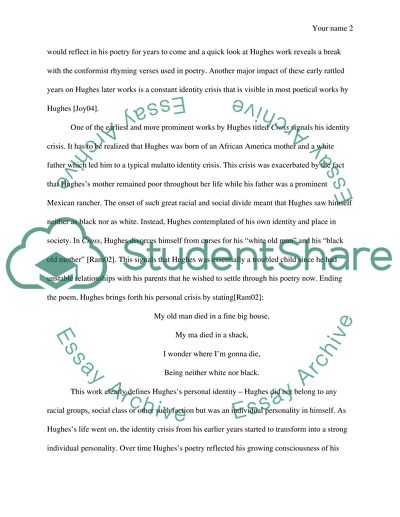Cite this document
(“Explication of Langston Hughes Poetry Research Paper”, n.d.)
Retrieved from https://studentshare.org/literature/1458328-explication-of-langston-hughes-poetry
Retrieved from https://studentshare.org/literature/1458328-explication-of-langston-hughes-poetry
(Explication of Langston Hughes Poetry Research Paper)
https://studentshare.org/literature/1458328-explication-of-langston-hughes-poetry.
https://studentshare.org/literature/1458328-explication-of-langston-hughes-poetry.
“Explication of Langston Hughes Poetry Research Paper”, n.d. https://studentshare.org/literature/1458328-explication-of-langston-hughes-poetry.


